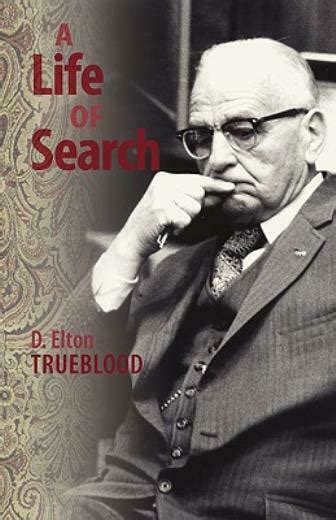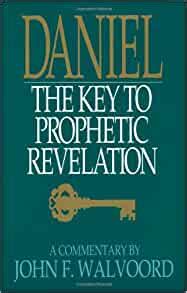A Quote by Robert Farrar Capon
But all the while, there was one thing we most needed even from the start, and certainly will need from here on out into the New Jerusalem: the ability to take our freedom seriously and act on it, to live not in fear of mistakes but in the knowledge that no mistake can hold a candle to the love that draws us home. My repentance, accordingly, is not so much for my failings but for the two-bit attitude toward them by which I made them more sovereign than grace. Grace - the imperative to hear the music, not just listen for errors - makes all infirmities occasions of glory.
Quote Topics
Ability
Accordingly
Act
Attitude
Bit
Candle
Certainly
Draws
Errors
Even
Fear
Freedom
Glory
Grace
Hear
Hold
Home
Imperative
Jerusalem
Just
Just Listen
Knowledge
Listen
Live
Love
Made
Makes
Mistake
Mistakes
More
Most
Much
Music
Need
Needed
New
Occasions
One Thing
Our
Out
Repentance
Seriously
Sovereign
Start
Take
Than
Them
Thing
Toward
Two
Us
Which
While
Will
Related Quotes
Grace is more than mercy and love. It super-adds to them. It denotes, not simply love, but the love of a sovereign, transcendent Superior. One that may do what He will. That may wholly choose whether He will love or no. Now God, who is an infinite Sovereign, who might have chosen whether ever He would love us or no; for Him to love us, this is Grace.
To create guilt, all that you need is a very simple thing: start calling mistakes, errors - sins. They are simply mistakes, human. Now, if somebody commits a mistake in mathematics - two plus two, and he concludes it makes five - you don`t say he has committed a sin. He is unalert, he is not paying attention to what he is doing. He is unprepared, he has not done his homework. He is certainly committing a mistake, but a mistake is not a sin. It can be corrected. A mistake does not make him feel guilty. At the most it makes him feel foolish.
I suspect that the most basic and powerful way to connect to another person is to listen. Just listen. Perhaps the most important thing we ever give each other is our attention And especially if it's given from the heart. When people are talking, there's no need to do anything but receive them. Just take them in. Listen to what they're saying. Care about it. Most times caring about it is even more important than understanding it. Most of us don't value ourselves or our love enough to know this.
So saving grace, converting grace, for Augustine, is God's giving us a sovereign joy in God that triumphs over all other joys and therefore sways the will. The will is free to move toward whatever it delights in most fully, but it is not within the power of our will to determine what that sovereign joy will be.
There are still people who insist that we have to preach on repentance. Well, I disagree! I think we should do it God’s way – preach the goodness of God and allow the goodness of God to lead people to repentance. Such repentance will be true repentance. It will not be motivated by the fear of judgment and indignation. It will be a genuine repentance that is motivated by His grace, unconditional love and compassion. After all, our ability to love God stems from our first tasting His love for us.
It is grace at the beginning, and grace at the end. So that when you and I come to lie upon our death beds, the one thing that should comfort and help and strengthen us there is the thing that helped us in the beginning. Not what we have been, not what we have done, but the Grace of God in Jesus Christ our Lord. The Christian life starts with grace, it must continue with grace, it ends with grace. Grace wondrous grace. By the grace of God I am what I am. Yet not I, but the Grace of God which was with me.
We live in a church culture that has a dangerous tendency to disconnect the grace of God from the glory of God. Our hearts resonate with the idea of enjoying God's grace. We bask in sermons, conferences, and books that exalt a grace centering on us. And while the wonder of grace is worthy of our attention, if that grace is disconnected from its purpose, the sad result is a self-centered Christianity that bypasses the heart of God.
Many years ago I was driven to the conclusion that the two major causes of most emotional problems among evangelical Christians are these: the failure to understand, receive, and live into God's unconditional grace and forgiveness; and the failure to give out that unconditional love, forgiveness, and grace to other peopleWe read, we hear, we believe a good theology of grace. But that's not the way we live. The good news of the Gospel of grace has not penetrated the level of our emotions.
This is the amazing story of God’s grace. God saves us by His grace and transforms us more and more into the likeness of His Son by His grace. In all our trials and afflictions, He sustains and strengthens us by His grace. He calls us by grace to perform our own unique function within the Body of Christ. Then, again by grace, He gives to each of us the spiritual gifts necessary to fulfill our calling. As we serve Him, He makes that service acceptable to Himself by grace, and then rewards us a hundredfold by grace.
The church, by and large, has had a poor record of encouraging freedom. She has spent so much time inculcating in us the fear of making mistakes, that she has made us like ill-taught piano students: we play our songs, but we never really hear them because our main concern is not to make music to avoid some flub that will get us in dutch.
Those who are not capable of sinning are said that they have attained freedom. The knowledge of the Truth raises them even more. This makes them both free and above this world. But only Love creates. He who became free thanks to knowledge, because of Love remains a slave of those who have not managed to attain the Freedom of knowledge yet. He brings the knowledge to them and this develops the latter because it calls them to the Freedom. Love takes nothing: how can it take something? Everything belongs to it. It does not say, "This is mine! And this is mine!" But it says: "This is yours!"
My family have always supported my rap - and they know I love them when I rap about them - but I'm just Michael Jackson to them. They care more about me. I express my love for them in a much more personal way on this record. It's about our conversations; my fear, and their advice. I know my sisters are gonna hear "Willie Burke Sherwood", which is named for my grandfather, and cry. I used to do music for me, because my ego needed it, but now I'm doing music for my family and friends who helped me become a rapper.
His great act of condescension in becoming man and His willingness to be completely humiliated in the death on the cross is set before us here as the supreme example of what our attitude should be. If Jesus Christ the Lord of glory was willing to be obedient unto death, how much more should sinners saved by grace who owe everything to God give back to the God who saved them the life which He has redeemed.



































